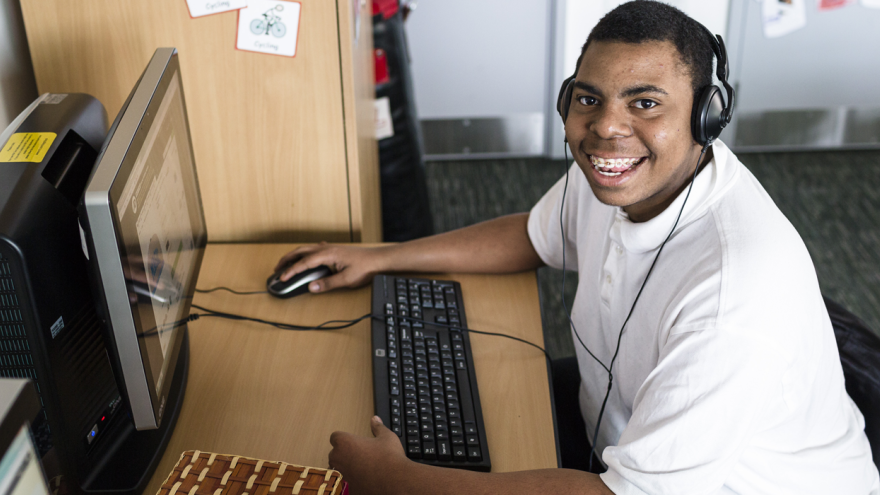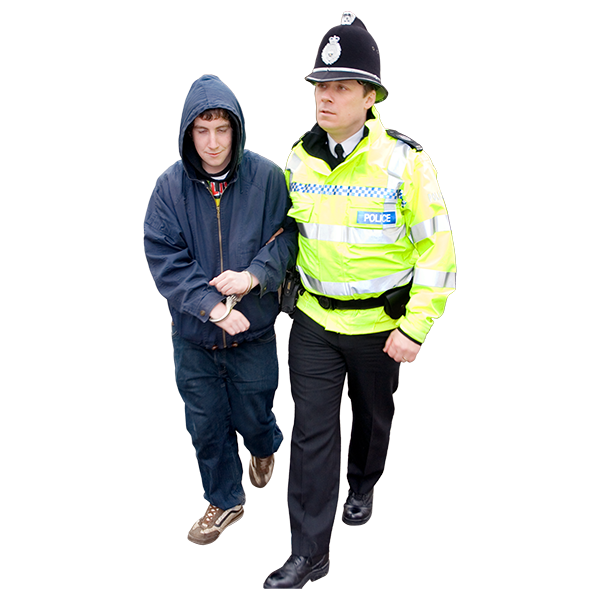We all want to feel safe, and there are plenty of things we can do to help keep ourselves and our belongings safe, whether at school or work, online or out and about.
Staying safe online
Be a savvy surfer! The internet is wonderful, but it’s important to know a few things about internet safety so you can use the internet with peace of mind.
Things like making sure your privacy settings are high on social media so you can control what information can be seen by your friends and the public.
Or making sure you don’t give your personal details to someone you don’t know and trust - like your phone number, address or bank details.
Find out more about staying safe online by downloading our free SafeSurfing training course, designed to help people with a
learning disability
 A learning disability is to do with the way someone's brain works. It makes it harder for someone to learn, understand or do things.
use the internet safely.
A learning disability is to do with the way someone's brain works. It makes it harder for someone to learn, understand or do things.
use the internet safely.
Easy-read resources from Beyond Bullying
A guide for parents, and some suggestions to help limit the risk of a child having negative experiences online.

Stay safe online
Are you a savvy surfer?
Learn how to stay safe online, so you can enjoy surfing the net with peace of mind.
As part of our SafeSurfing project, we produced resources to help you know what personal information you should share online, how to protect your personal data and surf the web safely.
Staying safe at school
If you are worried about being bullied at school, here are a few tips to help you stay safe:
- If you are worried, stay close to friends and in areas where there are lots of people around.
- If someone bullies you, don’t fight back - you might make the situation worse for yourself.
- Tell someone you trust, like a friend, teacher or parent. See bullying at school for more information about what to do if you are being bullied at school.
- Try not to show your emotions like being upset or angry - this is sometimes just what the bully wants.
- Label your clothes, bag, pencil case and other belongings that you think may be stolen from you to prove that they are yours.
- Don't walk alone - ask a teacher or friend to walk with you.
- If someone is waiting for you outside of school, ask a teacher or another pupil to walk with you so that you are not alone.
- There is no shame in asking for support - bullying is wrong and people will want to help you.
- Ask your teacher if there is a buddy scheme set up in the school - can they set up a buddy for you?
- If your school doesn’t have a bully box, ask for one to set up. Maybe you can even make one. A bully box is like a letter box. Anyone can post a note into the bully box to report a bullying incident, whether they are the person who has been bullied or someone who saw a bullying incident.
Staying safe out and about
If you are worried about being bullied when you go out, here are a few tips to help you stay safe:
- Let someone know where you are and when you’ll be back - a text will do.
- Leave your valuables at home.
- Don't take expensive things out with you if you can avoid it, and make sure your phone and wallet or purse are secure in a zip pocket or backpack.
- Plan your journey so you know where you’re going and how to get there.
- Try to stay in busy areas.
- If you don’t feel safe, ask for someone for help or go into to a safe, public place like a cafe or shop.
- Don’t try to look scary or mean - someone might think you are looking for a fight.
- If someone shouts at you or calls you names keep your head down, and avoid eye-contact. Walk away quickly to the nearest safe place. Stay calm and breathe deeply to help you think clearly. Don’t run away, unless someone gets violent, because they might chase you - try to ignore it and walk quickly to the nearest safe place. Once you know you are safe, you can report it to the police - see hate and mate crime.
- If someone steals from you or commits a
crime
 A crime is when someone does something wrong and breaks the
law
A crime is when someone does something wrong and breaks the
law
 Laws are the rules that everyone in the country has to follow. If you don't follow the rules you can get in trouble with the police.
.
, go straight to the police and tell them what has happened. Try to remember as many details about what happened as you can, like the time it happened, what the person was wearing, what they looked like, what their voice sounded like, what they said, where they went next, if anyone else was there to see what happened.
Laws are the rules that everyone in the country has to follow. If you don't follow the rules you can get in trouble with the police.
.
, go straight to the police and tell them what has happened. Try to remember as many details about what happened as you can, like the time it happened, what the person was wearing, what they looked like, what their voice sounded like, what they said, where they went next, if anyone else was there to see what happened. - If your purse or wallet is stolen, call your bank straight away to cancel your cards.
- Don’t let a bad experience stop you from making the most of your life. It is not your fault and if you are worried, there are lots of people who can help.
Useful resources
- Easy read PDF guide about staying safe out and about
- Sense has collated a list of resources about keeping safe
Do you have a tip to share? Let us know by emailing hello@mencap.org.uk.
